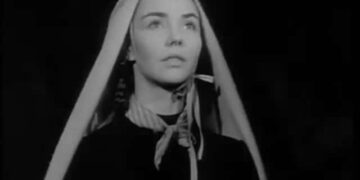“A Fortunate Man” or “Lykke-Per,” is a captivating narrative of a man named Peter Sidenius, also known as Per, who rejects his rigid religious upbringing to pursue a career in engineering and a life of personal freedom. The story unfolds in the late 19th century, a time of great industrial advancements and societal changes, and it reflects the inner turmoil of a man torn between ambition and desire for acceptance.
The book “Lucky Per” was penned by Henrik Pontoppidan, a Danish writer who received the Nobel Prize in Literature for his profound understanding of the human condition and societal evolution. The story was later adapted into a film named “A Fortunate Man,” directed by Bille August, which beautifully encapsulates the essence of the book while adding its distinct touch to the narrative.
Understanding “A Fortunate Man” and “Lucky Per”
In both the book and the movie, Peter Sidenius (or Per) is portrayed as an ambitious young man who abandons his strict religious family to make a name for himself in the world of engineering. His innovative ideas and fierce determination make him stand out, earning him both admirers and critics.
Per finds solace and companionship in Jakobe Salomon, a wealthy Jewish woman who shares his passion for progress and innovation. However, their relationship faces numerous hurdles, stemming from their different backgrounds and Per’s relentless pursuit of success.
When and Where Does the Story Unfold?
The story unfolds in Denmark during the late 19th and early 20th centuries, a time of significant industrial growth and societal change. The backdrop of this era provides a compelling contrast to Per’s personal journey, reflecting the broader shifts in society and the individual’s struggle to adapt.
Movie Locations of “A Fortunate Man”
While the story is set in Denmark, the movie was filmed in various locations to capture the essence of the era and the characters’ lives. From the breathtaking landscapes of Funen, the birthplace of Per, to the bustling city of Copenhagen, where Per aspires to make a mark, the film locations add a layer of authenticity and depth to the narrative.
A Look at the Characters in “A Fortunate Man” and “Lucky Per”
The characters in both the book and the movie adaptation are complex, reflecting the nuances of human nature and the societal norms of the time. Here’s a brief overview of the key characters and their portrayals:
- Peter Sidenius/Per: The protagonist of the story, Per is an ambitious and innovative man who struggles with his desire for success and acceptance. His determination to break away from his rigid religious upbringing and make a mark in the world forms the crux of the story.
- Jakobe Salomon: A wealthy Jewish woman, Jakobe becomes a significant part of Per’s life, sharing his passion for progress and innovation. Her character adds depth to the narrative, highlighting the societal constraints and prejudices of the time.
- Ivan Salomon: Jakobe’s brother, Ivan Salomon, is an influential figure in the world of finance. His interactions with Per shed light on the dynamics of power, wealth, and societal status.
- Pastor Sidenius: Per’s father, Pastor Sidenius, represents the traditional religious beliefs and values that Per seeks to abandon. His character serves as a stark contrast to Per’s progressive mindset.
The Influence of Lorenz Dangel’s Music
The music of “A Fortunate Man,” composed by Lorenz Dangel, adds a profound layer of emotion and depth to the film. Dangel’s compositions beautifully complement the narrative, enhancing the mood and atmosphere of each scene. The soundtrack received critical acclaim for its ability to evoke emotions and add a unique element to the storytelling.
Lorenz Dangel, born in 1978, is a German composer known for his work in various film and television productions. His unique style, characterized by a blend of classical and contemporary elements, has established him as one of the most sought-after composers in the industry.
Interesting Trivia about “A Fortunate Man” and “Lucky Per”
Over the years, “A Fortunate Man” and “Lucky Per” have gained a significant following, with fans intrigued by the compelling narrative and profound themes. Here are some interesting tidbits about the book and the movie:
- The book “Lucky Per” is considered one of the most significant works of Danish literature and was included in the Danish Culture Canon in 2006.
- The movie “A Fortunate Man” was Denmark’s official submission for the Best Foreign Language Film at the 91st Academy Awards.
- The character of Per is believed to be partly autobiographical, reflecting Henrik Pontoppidan’s own experiences and observations.
- The film adaptation took several creative liberties with the story, including the depiction of certain characters and events, to enhance the visual storytelling.
Cosplay and Dressing Tips for Fans
For fans of “A Fortunate Man” and “Lucky Per,” dressing up as the characters can be an exciting way to express their admiration. Here are some tips:
- Peter Sidenius/Per: Per’s look is characterized by his formal attire, reflecting his professional ambitions. A suit, a waistcoat, and a pair of glasses would perfectly capture his character.
- Jakobe Salomon: To emulate Jakobe’s look, opt for elegant dresses, characteristic of the late 19th and early 20th centuries. Don’t forget to add a touch of sophistication with accessories like hats and gloves.
An Insight into Henrik Pontoppidan’s Life and Works
Henrik Pontoppidan, born in 1857, was a Danish author known for his keen observations of society and the human psyche. He made significant contributions to Danish literature and won the Nobel Prize for Literature in 1917.
Pontoppidan’s works reflect his deep understanding of societal changes and the struggles of the individual. His ability to weave complex narratives with profound themes has made him a revered figure in the literary world.
Notable Works by Henrik Pontoppidan
Henrik Pontoppidan’s extensive body of work includes many notable novels and short stories. Here are five of his most acclaimed works:
- “The Promised Land” (1891): An insightful exploration of the conflicts and struggles within a religious sect.
- “The Old Adam” (1894): A compelling narrative about a man’s struggle to balance his religious beliefs with his earthly desires.
- “The Kingdom of the Dead” (1896): A profound commentary on the societal norms and prejudices of the time.
- “Emanuel” (1899): A riveting tale about a man’s quest for personal freedom and spiritual enlightenment.
- “Lucky Per” (1904): A timeless story of ambition, love, and the quest for personal freedom, considered one of Pontoppidan’s most significant works.
Bille August’s Contributions to Film and Television
Bille August, born in 1948, is a Danish filmmaker known for his ability to bring complex narratives to life. His films are noted for their depth, emotional resonance, and meticulous attention to detail.
August’s illustrious career includes numerous acclaimed films and television series. His work on “Pelle the Conqueror” earned him the Palme d’Or at the Cannes Film Festival and the Academy Award for Best Foreign Language Film.
Noteworthy Media Adaptations by Bille August
Bille August’s creative genius extends beyond “A Fortunate Man.” Here are five other notable media adaptations by the acclaimed director:
- “Pelle the Conqueror” (1987): An evocative portrayal of a father and son’s struggles as immigrants in Denmark.
- “The Best Intentions” (1992): A riveting exploration of a couple’s relationship, penned by renowned author Ingmar Bergman.
- “Jerusalem” (1996): A cinematic adaptation of Selma Lagerlí¶f’s novel about a religious community in Sweden.
- “Goodbye Bafana” (2007): A powerful depiction of Nelson Mandela’s life and his relationship with his prison guard.
- “Night Train to Lisbon” (2013): A thrilling narrative about a professor’s journey to unravel the mysteries of an enigmatic author.
Movies Similar to “A Fortunate Man”
If “A Fortunate Man” captivated your interest, here are 10 similar movies that you might enjoy. These films share common themes of ambition, societal norms, and the quest for personal freedom:
- The Danish Girl
- The Reader
- The Remains of the Day
- Atonement
- The Hours
- Revolutionary Road
- The Great Gatsby
- The English Patient
- The Painted Veil
- The Age of Innocence
Engaging Book Club Questions for “Lucky Per”
If you’re part of a book club or enjoy discussing literature, here are some thought-provoking questions about “Lucky Per”:
- How does Per’s upbringing influence his life choices?
- Discuss the theme of ambition in the book. How does it affect the characters?
- Explore the societal norms and prejudices depicted in the book.
- How does the time period influence the characters and their actions?
- Discuss the ending of the book. Did it meet your expectations?
Novels Similar to “Lucky Per”
If you found “Lucky Per” engaging, here are 10 similar novels that might captivate your interest:
- “Anna Karenina” by Leo Tolstoy
- “Madame Bovary” by Gustave Flaubert
- “Middlemarch” by George Eliot
- “The Portrait of a Lady” by Henry James
- “The Mill on the Floss” by George Eliot
- “The Age of Innocence” by Edith Wharton
- “A Room with a View” by E.M. Forster
- “The Tenant of Wildfell Hall” by Anne Bronte
- “The Way of All Flesh” by Samuel Butler
- “Daniel Deronda” by George Eliot
Parent Guide for “A Fortunate Man”
As a parent, it’s important to consider the content of “A Fortunate Man” before deciding whether to watch it with your children. The movie deals with mature themes, contains scenes of violence and strong language, and may evoke intense emotions. Consider your child’s age, maturity level, and sensitivities before making a decision.
A Guide to Buying and Gifting “A Fortunate Man” and “Lucky Per”
Whether you’re looking to buy “A Fortunate Man” or “Lucky Per” for yourself or as a gift, consider purchasing from reputable sources to ensure the quality of the product. Consider the recipient’s preferences, such as whether they prefer books or movies, and if they have an interest in historical narratives or stories about societal changes and personal growth.
Conclusion
“A Fortunate Man” and “Lucky Per” are timeless narratives that delve into the complexities of ambition, societal norms, and the quest for personal freedom. Whether you explore the book or watch the movie, the story will leave a lasting impact, prompting you to reflect on the societal changes and personal struggles depicted. So, immerse yourself in the world of Peter Sidenius, participate in a book club discussion, or host a movie night with loved ones. Discover the depth and complexity of “A Fortunate Man” and “Lucky Per,” and embark on a journey of self-discovery and reflection.













